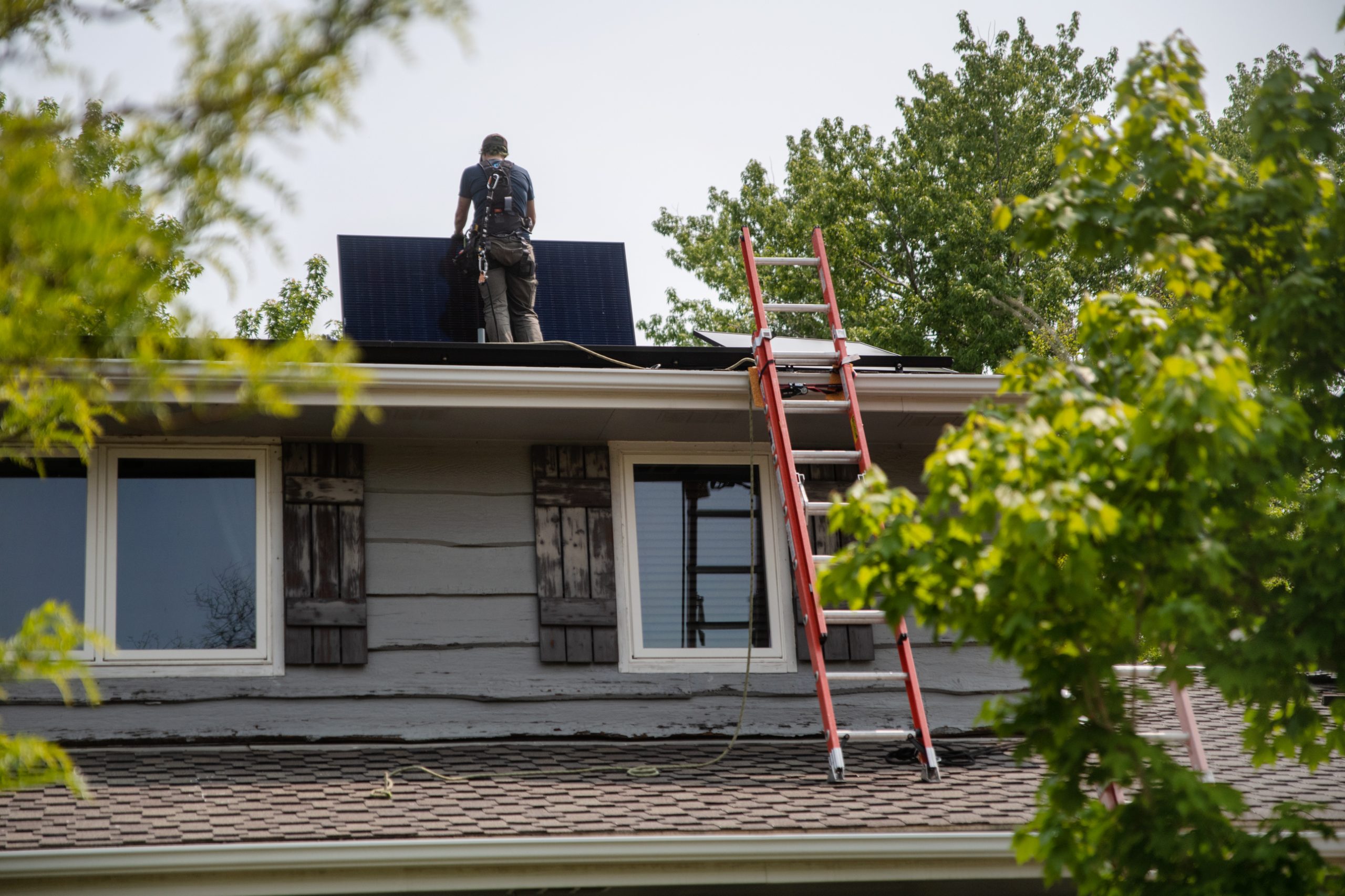Xcel should be ordered to get moving on home solar hookups, state regulators and industry groups say – The Colorado Sun
Xcel Energy has dragged its feet in setting up a state mandated program to connect home solar arrays and should be ordered to get the program moving, according to a complaint filed with the Colorado Public Utilities Commission.
The complaint by industry and state agencies outlines a three-year battle to get Xcel Energy’s subsidiary, Public Service Company of Colorado, the state’s electricity provider, to file a solar tariff, a document that sets out fees, deadlines and interconnection procedures and a connection timeline.
“Unfortunately, this regulatory delay continues, and it continues to the benefit of Public Service and the detriment of interconnection customers,” the complaint said.
The complaint was filed July 2 and a day later Xcel Energy circulated a draft tariff among parties, including the complainants. The tariff, the company said, is slated to be filed Friday.
In a settlement – that included groups and agencies filing the complaint — Xcel agreed more than eight months ago to file the tariff and timeline.
“We believe we have followed the intent of the settlement agreement and the orders of the Public Utilities Commission on implementing and tracking customers’ requests to interconnect distributed energy,” Xcel Energy said in a statement.
The complaint — by the Colorado Solar and Storage Association, a trade group, the Colorado Office of Utility Consumer Advocate, the Colorado Energy Office and the PUC’s staff — asked the commission to order Xcel Energy to file the tariff this week.
“Customers on Public Service’s system who would like to interconnect solar and storage resources have been plagued by interconnection delays,” the complaint said. “Public Service has exacerbated those delays through its inaction and its failure to adopt interconnection timelines in tariff as required by Commission rule.”
In February, Xcel Energy told the PUC, in a filing, that it would clear up a 4,000-application backlog by mid-March.
Some of the delay, the company said, had been caused by incomplete connection applications from developers and homeowners.
Reasons for rejecting applications are “trivial”
However, Mike Kruger, Colorado Solar and Storage Association CEO, said in a PUC filing last fall that “applications are being rejected during the Completeness Review step for trivial reasons, including customer middle initials missing, inversion of numbers in a customer address, or using short-hand in line drawings submitted for engineering review.”
In 2024, Xcel Energy said it has achieved a 99% record of hitting connection timing milestones for thousands of interconnection requests.
There is no independent record of those interconnections. “There is no guarantee that the company is tracking appropriate records of interconnection delays since the interconnection tariff is not yet in effect,” the complaint said.
The PUC adopted interconnection rules in 2021, but it took a commission order in February 2023 to get Xcel Energy to file a tariff sheet and an installation timeline. The company, however, did not file all the required material.
In October 2023, Xcel Energy agreed to a settlement — which included the groups filing the complaint — on a plan to implement tariffs, timelines and refunds for tardy installations. The settlement still hasn’t been implemented.
“Regulation only works when companies comply with commission orders and rules,” said Joseph Pereira, deputy director of UCA. “The company has basically ignored the order.” The UCA represents residential and small commercial customers in PUC proceedings.
When concerns were raised with Xcel Energy before the complaint was filed, Pereira said “we were told they were having computer issues and tracking issues and that’s what is creating the inability to meet the order.”
“Either they are antisolar or they have operational issues affecting customers. Either way customers are burdened and they need to comply with the order,” Pereira said.
Under the settlement agreement Xcel must have a way to refund the fee homeowners pay upfront if the utility doesn’t connect the solar array within a set time.
For example, in an example included in the settlement if the company has 50 days to connect an array and it takess 70 days $204.88 of a $250 fee would be refunded. If the installation took 251 days the refund would be $268. The refund program has not yet been implemented.
The tariff to be filed Friday will have a refund mechanism and performance incentives to encourage the company to meet the installation timelines.
The complaint asks the commission to direct Xcel Energy to issue refunds to all customers who experienced interconnection delays since Feb. 1 of this year.In response to customer complaints about installation delays, the legislature in 2023 passed a bill that also gave the PUC the power to fine Xcel Energy $2,000 a day for interconnection delays.


